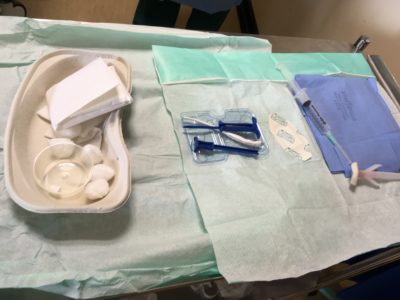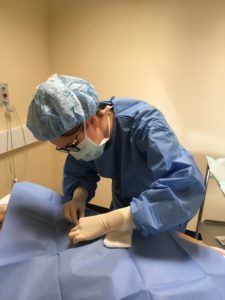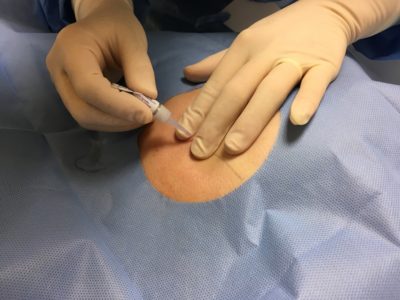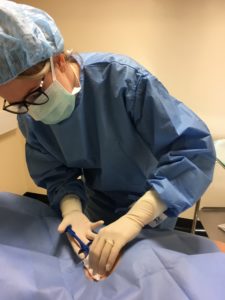Innovative work by the Lincolnshire Heart Centre is now helping to save the lives of stroke patients across the county. Communications officer Zoe Leahy spent an afternoon in clinic to see how the first class expertise of the team is being used to prevent patients from having further strokes.


I know a little bit about heart conditions due to my family history, but I had no idea that one in six of us will develop an irregular heartbeat, known as atrial fibrillation (AF), during our lifetime. This condition can increase a person’s risk of stroke by up to five times if left untreated and it is estimated that up to 500,000 people across the country could be unaware that they have AF.
This is where the heart centre’s work is helping to save lives. By injecting a heart loop monitor into patients who have no other obvious cause for their stroke, the team can monitor a patient’s heart rhythm remotely and act quickly to get them on medication to dramatically reduce the chances of them having a further stroke if they are diagnosed with AF.
The team, which is based in the specialist centre adjoining Lincoln County Hospital, was one of the first in the country to use injectable devices to record heart rhythms and has been helping to set up similar services in countries as far away as Australia and New Zealand.
The heart loop recorders are implanted just under the skin of the chest and monitor the electrical activity of the heart. The results are then downloaded via a ‘hub’ in the patient’s own home that sends the information electronically to the heart centre for review.
Dee Sharpley is a 70-year-old retired lorry driver who was having the monitor injected to try to get to the bottom of the reason for the ‘funny turns’ she keeps experiencing.
Dee said: “It is such a feeling of relief to have this fitted. It really is the most amazing machine and I am blown away by how such a small device can do this. Having it injected wasn’t very painful and I am so much happier knowing that it is there. It makes me feel safe and it is so easy to use.
“They are looking to see if I have got an irregular heart rhythm and if this is the cause of my funny turns.”
Dee is very active and attends a Pilates class, aeorobics and tennis several times a week. She also volunteers for the Contact the Elderly charity as a driver.

“I have been told that by being active I am at a lower chance of having a stroke, but it is great to know that by having the monitor fitted we will be able to know for certain. If I have got an irregular heart rhythm we can then do something about it and reduce my chance of having a stroke even further.”
Lead Cardiology Advanced Care Practitioner Jo Denman said: “Thousands of people with atrial fibrillation are needlessly dying of stroke every year because they are not being identified and adequately managed. By using heart loop monitors we can stop this from happening by getting them diagnosed and on the correct medication as soon as possible.”
Jo is also advising the National Centre for Health and Clinical Excellent (NICE), this is the Government’s health watchdog on the development of national guidelines around the use of heart loop monitors in the care and management of patients who have suffered a stroke.
